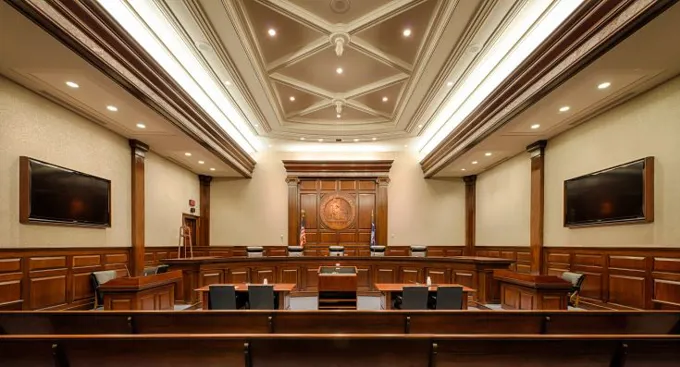
What is Civil Litigation - Process & Cost
What is Civil Litigation?
Even though no two litigation cases are alike, cases can reasonably be grouped in certain broad categories, according to type. Last month, I wrote about one category of litigation cases, namely lawsuits filed against government agencies, typically after the agency reaches a decision to grant or deny a permit. In this article, I explain civil litigation, where one person/party files against another to vindicate a legal right.
Example Civil Litigation Situations and Cases
Riparian Rights
We help many clients with issues related to piers, in addition to all of the other issues that come up at waterfront properties. When it comes to piers, there are times, for example, when the regulatory agencies approve permits for construction of a pier that will encroach in the riparian area of another person. When this happens, a lawsuit against the offending pier owner often time is the only way to solve the problem.
Commercial Property
We have also been called upon by a commercial waterfront property owner to eliminate a massive collection of large, old, dilapidated vessels, statically arranged in the waterway in numbers so great that our client could not navigate to and from his facility (click
State Water Control Law
Yet another example might be the use of the State Water Control Law to recover damages from an oil spill when a vessel fouls the shoreline owned by a commercial or residential waterfront property owner.
Citizen’s Environmental Lawsuit
One further example is the citizen’s environmental lawsuit. In cases of this type, a private citizen steps into the shoes of the environmental regulatory agency to enforce the environmental law against a violator . . . but only after the private party delivers a formal notice to the environmental regulatory agencies and those agencies fail to act against the violator.
Two Things the Savvy Litigant Should Have Before Filing
Civil Litigation Attorney
Things very likely will not turn out well if a person attempts to file and prosecute a civil action without an attorney. A person with a broken leg who avoids seeing a medical doctor, in the hope of saving money, can expect to walk with limp for the rest of his life. Similarly, the person with no civil litigation attorney who drafts and files a lawsuit, and then attempts to prosecute the lawsuit without an attorney, should expect to receive a poor result that, once decided, will be a permanent result that cannot later be changed.
Warchest (Financial Strength)
The kings and queens of Europe knew that warfare was expensive. Civil litigation is no different. Even though the litigants do not pay any sort of rent for use of the courtroom, nor do they pay the personnel costs for the Judge and the other people staffing the courtroom, the litigants do pay the legal fees of their chosen attorney, and they pay the other “costs” of the litigation (court reporter fees, expert witness fees, service of process fees, etc.). In nearly all cases each litigant will be responsible for funding his or her own legal fees and costs. There is little prospect of recovering those expenditures from the losing party.
The Civil Litigation Process
The Attorney’s Pre-filing Investigation
The reputable attorney will investigate the facts and the law before filing suit. The law in Virginia is that an attorney is subject to court-imposed sanction if the attorney files a lawsuit that is “frivolous” (i.e. not well grounded in fact or law).
The Complaint
If the pre-filing investigation indicates the case has merit the attorney initiates the case by filing a legal document known as the “complaint” with the Court. The attorney who files the complaint represents the “plaintiff”. The complaint will identify the parties, state the facts, state claims that the plaintiff is asserting against the defendant, and will describe the relief that the plaintiff wants the Court to order the defendant to deliver to the plaintiff.
The Court, on receiving the complaint, will generate a summons. The summons is the document that commands the defendant to appear in Court to respond to the complaint or else suffer the entry of a default judgment against the defendant. The plaintiff arranges for the summons and the complaint to be served to the defendant.
Defendant’s Response to the Complaint: Demurrer or Answer
The defendant, after having been served with the summons and the complaint, has a very specific deadline by when the defendant must file papers with the court that respond to the complaint. Many defendants respond by filing a demurrer, or motion to dismiss, but some file an answer. The defendant who elects to respond with a demurrer enjoys the possibility that the Court will agree to dismiss the case but, even if the Court does not grant the demurrer, some defendants believe the demurrer is to their advantage because of the cost imposed on plaintiff to respond to the demurrer, and then appearing at the Court hearing where the demurrer is granted or denied. The demurrer, if granted, is normally accompanied by a permission from the Court for the plaintiff to revise and refile the complaint. If the demurrer is not granted the Court will then order the defendant to file an answer to the complaint. The parties are considered to be “at issue” once the answer is filed and the case moves to the next stage of the litigation process.
Discovery
Discovery typically commences once the parties are at issue. The parties enjoy broad ability to obtain information needed for the case. They can issue interrogatories and/or requests for production of documents to each other. They can issue subpoenae duces tecum that command third parties to deliver documents to the issuing party. They can issue subpoenae that compel third persons to answer questions under oath during a process called a deposition. The parties can also depose one another.
There is ample opportunity for a party to hold back information from the other party when answering discovery. This puts the requesting party to the task of communicating the deficiency to the withholding party and perhaps even filing a motion to rectify the deficiency, followed a by a Court hearing to decide the matter. This type of gamesmanship, which happens far too often in civil litigation, is another factor that drives the high cost of civil litigation.
Trial
Trail takes place after the close of discovery. The logistics of arranging witness appearance at trial, the time needed for the attorneys to prepare direct and cross examination of witnesses, the legal research and time required to write motions and responses to motions, all of these and more are examples of the costly incidents of trial. Indeed, the preparations we undertake during the two weeks before trial, and the intensive attorney effort at trail, make this phase of the process equally or more expensive than all of the proceedings that took place earlier in the case. Cost avoidance is a very strong incentive for parties to settle their case short of trial.
Post-trial
The losing party enjoys the ability to file post-trial motions seeking to modify the decision of the Court. If this does not produce the desired result the losing party can take an appeal to the Virginia Court of Appeals. There is also the possibility of a further appeal to the Virginia Supreme Court however, the Virginia Supreme Court rejects the vast majority of the appeal requests that it receives.
Another post-trial consideration arises when the defendant, who is under a Court-issued judgment to pay the plaintiff a sum of money, neglects to pay the sum that is due. This puts the plaintiff to the burden, and the expense, of using the legal system to attempt to collect the sum through use of garnishments and/or levying execution on the defendant’s assets.
How Much Does a Civil Lawsuit Cost?
This question can only be answered by providing a very wide range of cost figures. Because each side pays its own legal fees, the plaintiff and the defendant are under a strong incentive to settle the case, as this enables them to “stop bleeding” legal fees. Something like 90% of civil cases settle before trial.
Quick Settlement
The case that settles promptly after the summons and complaint are served to the defendant is the least costly example. Written discovery (e.g. interrogatories, requests for production of documents, and subpoenae duces tecum) adds another increment to the client’s legal bill. Cost mounts rapidly if there is heavy motion practice during discovery. Cost also mounts quickly when the case moves from paper discovery to depositions. Cost mounts rapidly yet again if the case proceeds to trial.
Plaintiff Costs
The least a plaintiff should expect to pay is about $7,500. This only happens when the case settles promptly after the defendant is served with the summons and the complaint. Depending entirely on how the case progresses, legal fees and costs north of $200,000 are certainly possible or even probable.
Before filing suit, it is wise to consider whether you possess the financial strength to see the case through to the end. There are defendants who seek to financially exhaust the plaintiff so as to eliminate an otherwise meritorious case on terms quite sparing, as compared to what the plaintiff would have been able to secure for him or herself but for the fact that plaintiff ran out of money midway through the litigation process.
Civil Litigation Attorneys
The civil litigation attorneys on our Waterfront Property Law Team have strong connections, significant legal experience and go the extra mile for our clients to get the job done, to include successfully defending an important wetlands permit in federal court in Norfolk and successfully protecting a community association’s right to allocate slips at its community pier on the Potomac River. A few years ago one of our attorneys kicked off his shoes and got in the water to fend off a criminal enforcement action. The attorney got soaked in the process, but he protected our client from facing criminal charges. Contact us to get the help you need from attorneys who go the extra mile to serve you.
